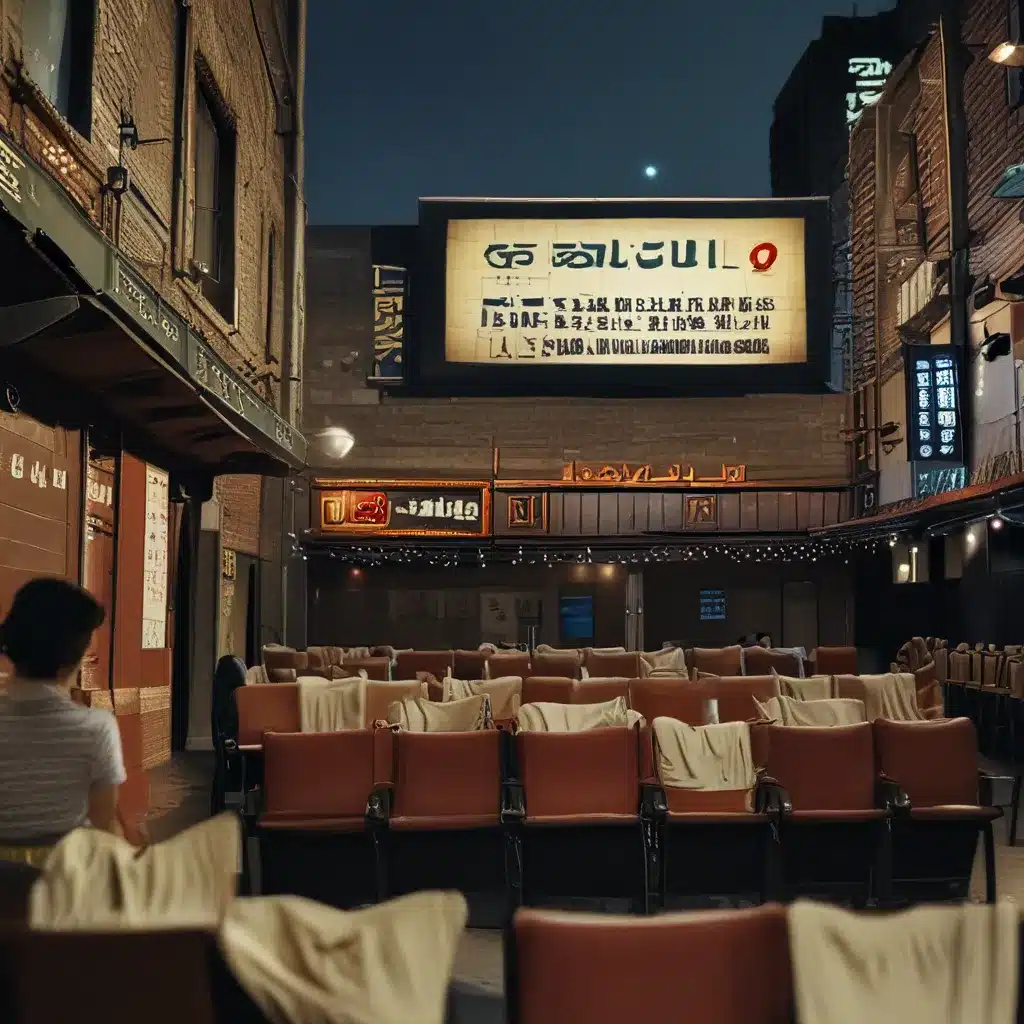
Discovering the Heartbeat of Seoul’s Cinematic Underbelly
As a self-proclaimed cinephile, I’ve always been drawn to the gritty, the unconventional, and the unapologetically raw when it comes to filmmaking. So when I stumbled upon the vibrant independent film scene in Seoul, South Korea, it was as if I had discovered a kindred spirit – a cinematic underworld that pulsed with creativity, passion, and a relentless pursuit of artistic expression.
Beneath the Glitz and Glamour
Amidst the towering skyscrapers and neon-lit streets of Seoul, there lies a thriving underground film community that offers a stark contrast to the polished, mainstream productions that often dominate the industry. As I delved deeper into this world, I found myself captivated by the raw, gritty stories that emerged from the shadows – tales that challenged social norms, explored the complexities of the human experience, and shattered the conventional boundaries of storytelling.
Uncovering the Gems
One such gem that caught my eye was the Cannes Film Festival-acclaimed “Return to Seoul”, a film that follows the journey of Freddie, a French-Korean adoptee, as she embarks on a life-altering trip to her homeland. Directed by the visionary Davy Chou, this poignant and introspective narrative immediately struck a chord with me, resonating on a deeply personal level.
A Kindred Spirit
As I delved into the film’s rich tapestry, I discovered the captivating performance of newcomer Park Ji-Min, who brought Freddie’s complex and multifaceted character to life with an authenticity that was both haunting and mesmerizing. Her background as a visual artist, she revealed, had profoundly shaped her approach to the role, allowing her to tap into the emotional depths of the character in a way that transcended the boundaries of traditional acting.
The Power of Music
One of the most striking elements of “Return to Seoul” was the way in which music served as a character in its own right, weaving through the narrative and providing a conduit for Freddie’s innermost thoughts and feelings. As Park Ji-Min eloquently explained, “The music is the link. For Davy, he chose the way he used music in the film because of his love for music. For him, music was used as a way to communicate, and he wanted to convey that while sharing his joy in hearing different kinds of music.”
Embracing the Chaos
One of the most captivating aspects of “Return to Seoul” was the way in which Freddie, as a character, was described by the director as “a sort of agent of chaos who seeks out vitality and the change that stems from that.” As Park Ji-Min shared, “It is funny that he said that Freddie is an agent of chaos because when we came together, I almost destroyed his script in the process of rebuilding the character with him.” This collaborative approach to character development resulted in a multifaceted and complex portrayal that challenged the typical tropes of Asian female characters on the screen.
A Resonant Reflection
In the end, “Return to Seoul” struck a deep chord with me, not just as a cinephile, but as a fellow lost soul navigating the complexities of life. As Park Ji-Min so eloquently expressed, “I think Freddie is a fighter and in the same way she is a lost soul. I hope that all the lost souls that watch this movie see themselves in this character. I don’t think the movie can heal people, but I hope it will make people feel less alone and feel connected to that. We will fall, but we will keep moving.”
Unearthing Seoul’s Cinematic Treasures
Beyond the captivating story of “Return to Seoul,” the independent film scene in Seoul is a treasure trove of cinematic gems waiting to be discovered. From gritty, low-budget productions that tackle societal issues head-on to experimental works that push the boundaries of the medium, the city’s underbelly is teeming with raw, unfiltered creativity.
A Diverse Landscape
One such filmmaker who has made waves in the independent scene is Céline Song, whose film “Past Lives” captivated audiences at the 2023 Golden Globes. Exploring the complexities of identity, connection, and the lingering impact of lost love, Song’s work exemplifies the depth and nuance that can be found in the city’s independent offerings.
Navigating the Labyrinth
Unearthing these cinematic treasures, however, can be a challenge for the uninitiated. Seoul’s independent film scene is a labyrinth of hidden gems, often tucked away in nondescript venues or underground screening rooms. But for the dedicated cinephile, the journey is well worth the effort.
Insider Tips
One way to gain access to this vibrant world is to connect with the local film community. Attend festivals, such as the Seoul Independent Film Festival, or seek out independent theaters and art-house cinemas that showcase these hidden gems. Additionally, engaging with local film critics and enthusiasts can provide invaluable insights and recommendations.
A Cinematic Oasis
For those seeking an immersive experience in Seoul’s independent film scene, Hotel Stay Inn Seoul offers the perfect base of operations. Located in the heart of the city, this hotel not only provides comfortable accommodations but also serves as a hub for film-loving travelers, with dedicated spaces for screenings, panel discussions, and networking events.
By tapping into the pulsing underbelly of Seoul’s independent film scene, you’ll uncover a world of raw, unfiltered storytelling that will challenge your perceptions, stir your emotions, and leave an indelible mark on your cinematic journey.

